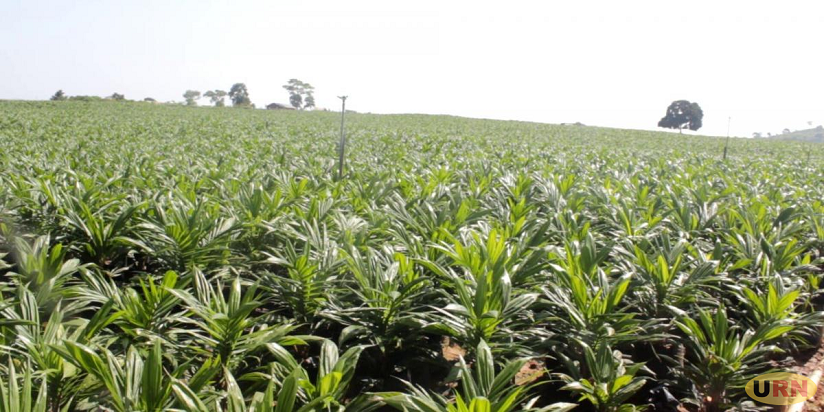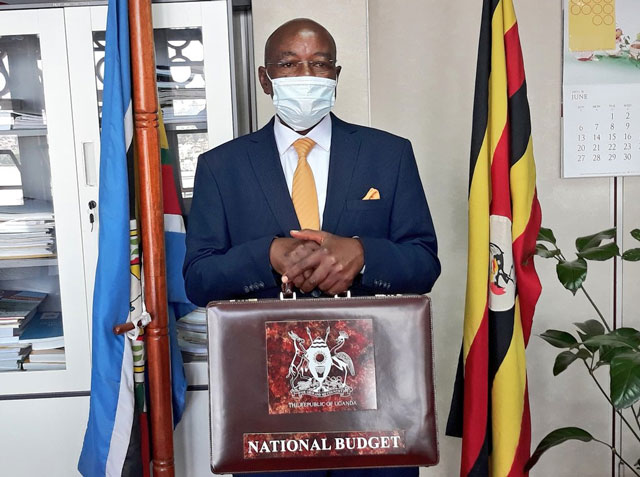Buvuma Oil Palm Uganda Limited has increased its manpower to improve oil palm growing condition in Buvuma district amidst reports of disease outbreak threats in Kalangala where the Ugandan palm oil culture started.
A report compiled by a National Agricultural Research Organisation-NARO technical team from the headed by Dr. Gabriel Ddamulira, Principal Oil Palm Researcher, Moses Otuba, a Pathologist from NARO and the National Oil Palm Project-NOPP Agronomist Charles Sembatya that conducted an investigation in Kalangala indicates that the outbreak of Fusarium wilt and Ganoderma diseases was mainly caused by poor farm management on the islands.
It transpires that in Buvuma district where oil palm growing is just starting, planting of seedlings in some cases took place in poorly cleared gardens. Consequently, according to Gerald Epai, the Buvuma District NOPP Coordinator, the investor has already increased on the man power of field workers and machinery to provide for smooth growth of the plants.
“Machinery are now enough and so are field workers,” Epai says. “We are lucky that houses for extension workers and other support staff have been put in place and we are working around the clock to see that we provide the best growing conditions.”
He notes that they are working together with small holder oil palm farmers to ensure health and better results through giving them advice and the required farm inputs.
The Buvuma Outgrowers’ Association Chairperson Salim Miso says they have not yet experienced diseases related issues in the gardens apart from sunshine which has been harsh, and most of the farmers are still managing with hand irrigation at this stage, confirming that so far they are still moving on well.
The assessment team sampled smallholder farmer fields in Kayunga and Kagulube blocks and made visual observations indicating that fields in Kayunga Block were relatively managed.One case of Ganoderma trunk rot (0.86%) was found, and two cases of palm weevil (1.72%) plus one case of boron deficiency (0.86%). At Kagulube, Busanje Unit, Fusarium wilt was observed to be prevalent in poorly managed fields and those largely planted on sandy soils.
It is indicated in the report that pest control is crucial in improving oil palm productivity. It is also observed that nutrient deficiencies are also a great challenge to proper palm oil especially when the field has not been applied with appropriate fertilizer to address the nutrients required resulting into manifestation of boron and magnesium deficiencies.
The report says: “The application of fertilizers in the right amount is anticipated to boost yields and reduce on nutrient deficiencies. In order to avert nutrient deficiencies, a palm tree needs 8kg of fertilizer in addition to use of cover crops, decanter cake and empty bunches that conserve soil moisture and boost palm growth especially in sandy soils and rocky areas. Similarly, woody shrubs must be regularly removed to avoid nutrient competition with oil palm trees.”
Currently the country through NARO, is working with other institutions in Africa to introduce oil palm disease resistant varieties that are globally accepted as the most effective measure against Fusarium wilt.
Dr Ddamulira also says they are working with countries CIRAD-Benin and OPRI-Ghana, which has led to the importation of Fusarium wilt resistant varieties from Palm-Elite (CIRAD-Benin) as a potential substitute to the susceptible oil palm hybrids.
“The resistant varieties are currently being evaluated at Namulonge for resistance against the strain of Fusarium wilt identified in Kalangala,” the researchers add. “The results will guide the adoption of Fusarium wilt resistant varieties in the expanding oil palm industry in Uganda.”
-URN





